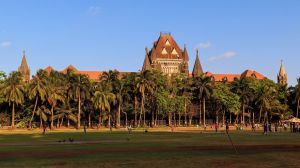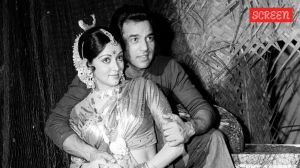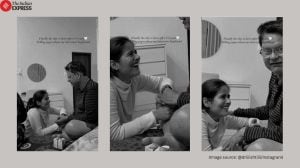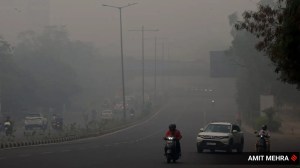UPSC Ethics Simplified | Utilitarianism : The Caselet
What would you do to maximise happiness and minimise pain? Take a hint from the Ethicist view. Here's a case to test your understanding of the theory of Utilitarianism.
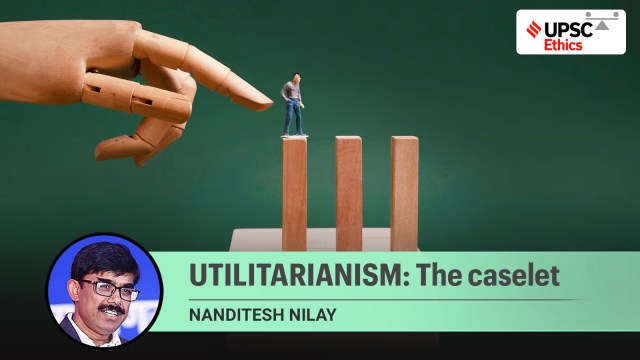 Officer faces ethical dilemma between arresting offender and saving his impoverished family in our caselet today.
Officer faces ethical dilemma between arresting offender and saving his impoverished family in our caselet today.Relevance: UPSC Ethics Simplified draws your attention to a topic of self-awareness and self-management in the form of a caselet. This caselet is an extension of the concept discussed on August 25 (UPSC Ethics Simplified- Utilitarianism : The Concept). It is advised to revisit the concept article before reading the caselet below.
Nanditesh Nilay writes for UPSC Ethics Simplified fortnightly. The first article will be a concept while the second article will be a caselet, based on the concept. Don’t miss the ‘Post Read Question’ below.
The Caselet
It was his first posting as an investigating officer in a state that used to be in the news for all the wrong reasons. Crime and political patronage were visibly coalesced and even colluded to break the edifice of law and order. Despite such an inimical state, Mr X was highly motivated to serve and give his best as an officer.
One day Mr. X’s superior called him urgently and updated him about an absconding person who had indulged in some financial irregularities and there was no doubt about his complicity. Local police could not find him so the officer in charge was asked to nab the person and bring him before the court. Mr X and his team went to the absconding person’s village to meet his wife and three children. He was surprised to see that all members of the family were living in a pathetic condition and were near to starving. Still, the officer took the lady in confidence and asked her to inform him about the whereabouts of her husband.
Surprisingly, after a few days, the lady informed the officers that her husband was present inside the house. Mr X along with one of the team members reached her house. However, the lady said, “He is the only bread earner of our family. You can take him but what about all of us? I will consume poison and so will my children. My husband will get a meal in jail but who will give us food? We are destined to die.”
Mr. X was completely perplexed and later took a call that could maximise happiness and minimise pain. He took his team member out of the hut and said, “This man will be nabbed by police in six months or later. But what about the life of the three small kids and the lady? Is it our moral duty to save the lives of four too? I know that this case will make me famous and we will be decorated with medals too. But what about these innocent lives?” Later he whispered, “Even the wisest man in our scriptures had gone with taradiddle in the state of dilemma.”
While the discussion was continuing between the two, Mr. X received a call from his senior. Holding the phone in his hand, he looked towards the family members. That poor woman’s complicit husband was ready to go with him. But the lady was looking cold and holding her children tightly below that poverty line. The phone continued to ring and the officer looked perplexed.
After six months the offender without transgressing any law surrendered and the group of officers attached to that case was awarded.
Post-Read Questions for UPSC Ethics Case Study:
What do you think the officer would have done and why?
If you were Mr. X what would have been your steps in the above mentioned case? How is the theory of Utilitarianism applied?
Ethicist view:
The officer would have saved the lives of all four. Simultaneously, he would have advised the family head to change his location and relocate his family to a place where they could do something and survive. Finally, he would have advised him to surrender after creating those basic amenities that would have helped his kids and wife to live and survive. Ultimately, it was certain that the lady, along with those kids, would have died and there was no hope in her life and pain was looming large behind that silver line of the ethical dilemma of that officer. Finally, the greatest good for the greatest number was revisited on an ethical canvass and an unfettered decision was held — Summum bonum which was the need of the hour.
(The writer is the author of ‘Being Good and Aaiye, Insaan Banaen’ and ‘Ethikos: Stories Searching Happiness’. He teaches courses on and offers training in ethics, values and behaviour. He has been the expert/consultant to UPSC, SAARC countries, Civil services Academy, National Centre for Good Governance, Central Bureau of Investigation (CBI), Competition Commission of India (CCI), etc. He has PhD in two disciplines and has been a Doctoral Fellow in Gandhian Studies from ICSSR. His second PhD is from IIT Delhi on Ethical Decision Making among Indian Bureaucrats. He writes for the UPSC Ethics Simplified (Concepts and Caselets) fortnightly.)
The Indian Express UPSC Essentials brings to you the August edition of its monthly magazine. Click Here to read.
Subscribe to our UPSC newsletter and stay updated with the news cues from the past week.
Stay updated with the latest UPSC articles by joining our Telegram channel – Indian Express UPSC Hub, and follow us on Instagram and X.
UPSC Magazine

Read UPSC Magazine
- 01
- 02
- 03
- 04
- 05









